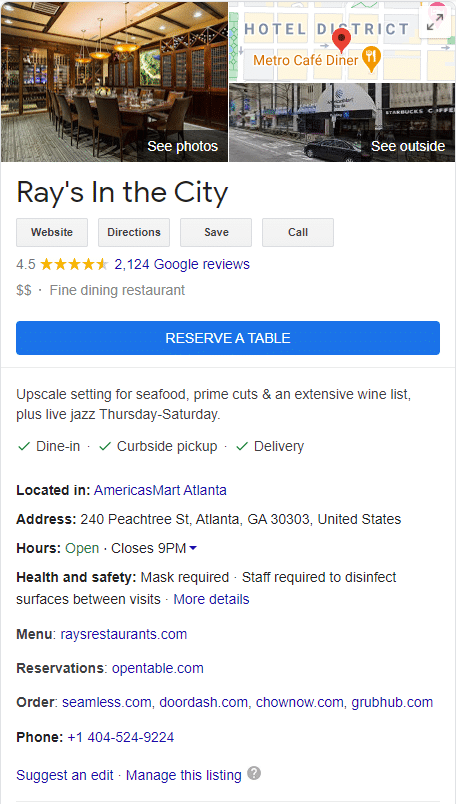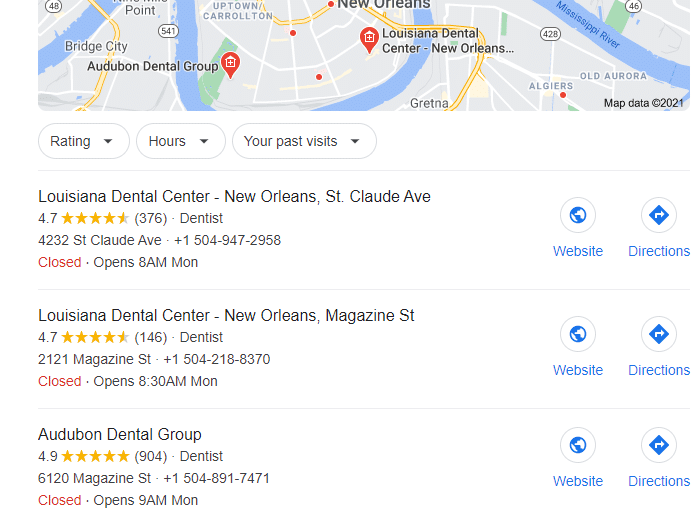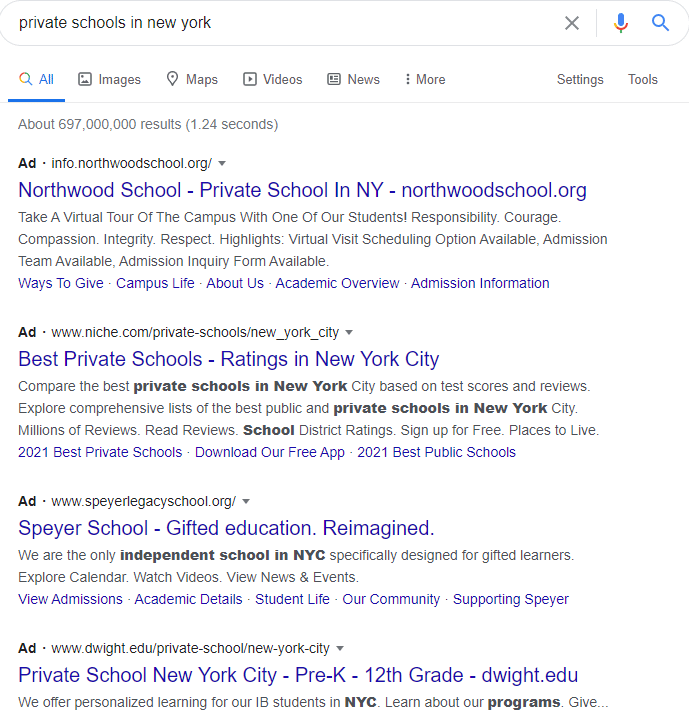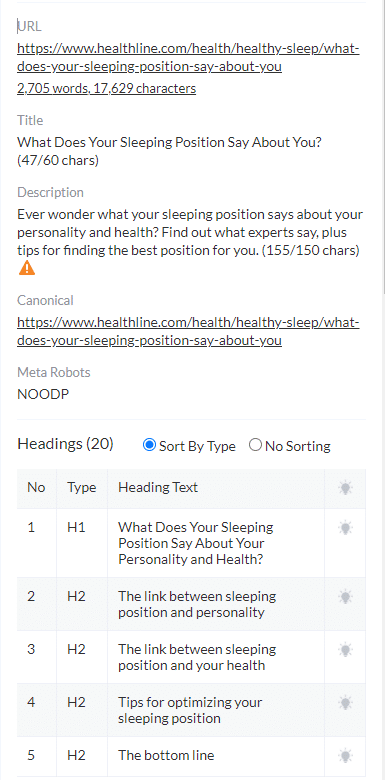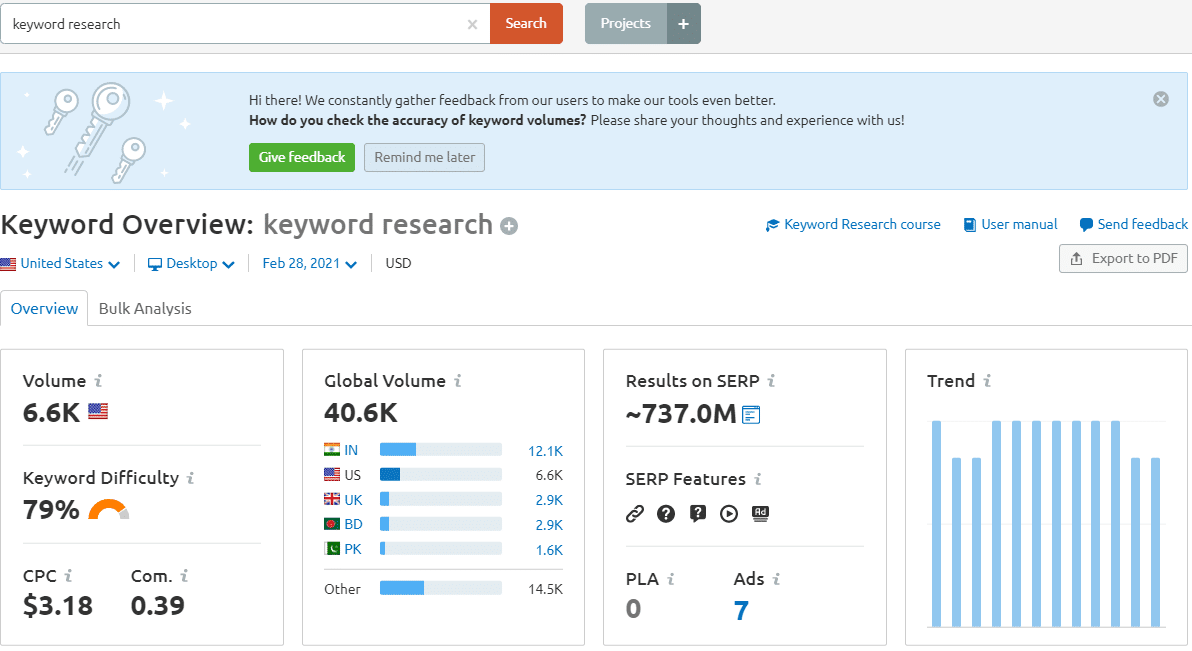Organic SEO (and the term “SEO” in general) can get thrown around in the marketing and advertising world a lot.
You know it’s important, but you’re not quite sure why. If you’re planning to get professional SEO services, it’s best to first understand what it is and what it can do for your business.
Implementing an organic SEO strategy will ensure that your website populates on the first page of certain search results, which can translate to:
- More site traffic
- More leads; and
- Ultimately, more sales.
This guide will walk you through everything related to organic SEO, including:
- The cost of organic SEO
- How it works
- What factors affect organic SERP rankings
- How to implement an organic SEO strategy and improve your SERP rankings
Is SEO Paid or Organic?
SEO, or search engine optimization, is entirely organic.
An organic SEO search will yield unpaid rankings in the search engine results page (SERP) while a paid search focuses on paid rankings.
Companies use SEO to optimize their site’s visibility and ranking organically in the SERP without paying to pay.
What Is Organic SEO?
Organic SEO references the non-paid practices that are used to help a company rank highly on search engines like Google or Yahoo!.
When you look up information about a product, for example, search engines will compile a relevant list of paid and unpaid results based on its algorithm.
Organic search results will typically populate at the top of the page or below a set of paid advertisements.
Sometimes though, unpaid search results will appear lower on the SERP under:
- A featured snippet
- Google Local Pack; or
- A “People Also Ask” section.
Based on your desired SEO result, the strategy you use to accomplish your end goal will vary.
Therefore, the best organic SEO strategies are better left to the experts — whether you’re a small business owner or an agency looking to take on bigger clients, getting professional SEO services will be a big help in growing and scaling your business.
What Is the Difference Between Organic SEO and Non-Organic SEO?
The difference between organic SEO and non-organic SEO is strictly the cost. High organic search engine rankings cannot be bought outright.
Paid search results and organic search results will also populate in different areas on the SERP.
Paid ads, if there are any for a specific search, will appear at the top and bottom of the SERP, while organic search results will appear just below the three paid ads or at the very top of the page.
Google Local Pack and Google Adwords don’t count as “organic SEO” because while they both have advantages, organic SEO is still the best SEO strategy.
Why, you ask?
Businesses rely on organic searches to:
- Increase their online visibility.
- Generate qualified leads.
- Attract in-store foot traffic.
- Build online sales.
- Grow their companies as a whole.
What Is the Google Local Pack?
Google Local Pack is a list of three local businesses that Google puts together when a search is done for local products or services.
This list typically sits at the top of the SERP, above organic search results.
The listings in Google Local Packs originate from the Google My Business directory — so, if a local business hasn’t activated their GMB, or updated it with relevant information, they won’t populate for relevant local searches.
According to Google, local results are based primarily on:
- Relevance
- Distance; and
- Prominence.
A combination of these factors helps Google populate accurate matches for local searches.
For example, their algorithms might decide that a business that’s farther away from the location of your search is actually more likely to have what you’re looking for than a business that’s closer and therefore rank it higher in local results.
Ranking in the Google Local Pack is essential for a local business as it can directly translate to more traffic and ultimately, more sales.
Google research shows that “76% of people who conduct a local search contact a business within 24 hours, and 28% of those searches result in a purchase of a service.”
What Are Google Adwords?
Google Adwords, now known as Goods Ads, is an online advertising solution that businesses use to promote their products and services on websites like:
- Google Search
- YouTube
- Google Maps; and
- Google search partner
Because businesses pay for Google Ads, it does not qualify as organic SEO.
With their Google Ads account, advertisers can:
- Choose specific goals for their ads, including driving phone calls or increasing website visits.
- Customize their budgets and target audiences.
- Start or stop their ads at any time.
But, while paid ads populate before organic results on the SERP, only 15% of traffic clicks on an ad or tries a different search.
The remaining 85% clicks on organic results, according to Zero Limit Web.
How Does Pay Per Click (PPC) Work?
Pay Per Click (PPC), which can also be referred to as CPC (Cost Per Click), means a company or business only pays for an ad if someone clicks on it.
Other ad models include:
- Cost Per Impression — Where a business pays based on how many times their ad was shown (not clicked).
- Cost Per Engagement — Where a company pays when a user completes a predefined engagement (like watching a video ad).
How Does Organic SEO Work?
Organic SEO is an umbrella online marketing strategy made up of techniques like …
- Keyword research
- Link building, and
- Content creation
…. which helps a website rank at the top of organic, unpaid search engine results pages.
A search engine’s ultimate goal is to find the best possible results for each user’s query. Check out our 2021 guide to search engine optimization.
If a company wants its website to rank highly in SERPs, organic SEO is essential.
Why Is Organic SEO Important?
Studies show that the first page of Google captures 71% of search traffic clicks and has even been reported to be as high as 92% in recent years.
From there, website clicks take a nosedive, coming in below 6% on second-page results.
This means that without organic SEO, businesses simply won’t rank on the first page of any internet search.
But just being on the first page won’t guarantee you a site visit — The first five results receive 67.6% of clicks, whereas the remaining five just receive 3.73%.
In order to have an online visibility, an organic SEO strategy should be part of any company’s marketing budget.
Understanding Search Engine Algorithms: 5 Factors That Affect Organic SEO Rankings
Search engines like Google, Yahoo!, and Bing each have algorithms that help them determine what appears on SERPs.
There are a variety of factors that influence how high a website ranks on a search engine, including:
- Is the website secure?
- How is the page speed?
- Is the site optimized for mobile devices?
- How is the technical SEO?
- What is the ratio of internal to external links?
- How is the actual content quality?
- What is the keyword relevance?
- And more
SEO best practices including optimizing a website for technical and on-page SEO. A process called SEO audit is conducted on websites to check their performance. Learning how to do an SEO audit will be helpful in finding out issues that need to be fixed and opportunities that can be undertaken.
In the following sections, we’ll outline why each is essential to a strong organic SEO strategy.
#1: Meta Description and Title Tags
A website’s on-page SEO is the technical back end of its pages.
In order to determine which piece of content will add the most value to the person searching, Google’s bots look at:
- URL structure
- Title tag
- Meta description
- Header tags (H1, H2, etc)
- Keywords
- Internal links
- External links
- And more
Without proper on-page SEO, your website doesn’t even have the opportunity to rank.
In the example below, both the Title Tag and the Meta Description are over the desired character length, so it’s not entirely optimized for organic SEO.
#2: Optimize Your URLs
In short, URL structure does matter in terms of SEO.
While URL structure may seem less important than optimizing title tags and meta descriptions, URLs can be a powerful tool for achieving organic SEO results.
In order to optimize the structure of your website’s URLs, you’ll want to ensure:
- URLs are uniform (all lowercase)
- You hyphenate between words and avoid using an underscore
- Relevant keywords are used as the “category” name
- You avoid using extraneous words
The correct use of URLs can:
- Give a potential site visitor insight into what a page is about.
- Help improve click-through rates wherever links are shared.
Additionally, keeping URLs shorter makes them more user-friendly and therefore, easier to share.
#3: Quality and Quantity of Content
Content marketing, according to the Content Marketing Institute, is a marketing strategy focused on:
- Creating and distributing valuable, relevant, and consistent content
- Attracting and retaining a clearly defined audience
- Ultimately driving profitable customer action
Organic SEO is an integral part (or should be) of any successful content marketing strategy.
SEO would not exist without content — but in order for content to be organically successful, it needs to be both useful and relevant to searches.
This means creating content that is:
- Useful and informative
- More valuable than other sites
- Credible
- High quality
- Engaging
With these elements, you set your content up for organic SEO success, but without them, your content will have very little value in the eyes of search engines.
#4: Keep Up With Algorithm Updates
Google’s algorithm dictates how websites rank on any given SERP.
SEO algorithms are written code that is used to scan the Internet and rank sites according to how well they follow that code.
Google’s ranking systems are made up of not one, but a series of algorithms.
In order to provide searchers with the most useful information and results of their inquiry, Search algorithms look at many factors, including:
- The words of your query
- Relevance and usability of pages
- The expertise of sources; and
- Your location and settings.
The weight applied to each factor varies depending on the nature of the query — for example, the freshness of the content plays a bigger role in answering queries about current news topics than it does about dictionary definitions.
To better brace for and understand any upcoming algorithm updates, look back on major algorithm updates of recent years.
This will give you a better understanding of rankings and what will have the most impact as you optimize content for algorithm updates.
#5: Have a Clear Cut SEO Strategy
Because there are so many elements to a strong organic SEO campaign, it’s essential to create a roadmap to follow.
But it can be hard to build a successful organic SEO strategy from the ground up on your own.
Our team members at SEOReseller are experts at SEO.
We can help you with:
- SEO campaign management
- Keyword research and link building
- SEO-friendly, user-targeted content creation
- Website audits
- And more
Whether it’s digital marketing for WordPress, Squarespace, or Shopify, our experts will start crafting and working on the right SEO strategy for you or your client.
9 Ways to Improve Your Organic SEO Ranking on Google and Other Search Engines
Organic rankings always equate to higher quality traffic that is much easily converted to a lead or sale.
To improve a website’s organic ranking, there are a few best practices to abide by.
From keyword research to competitor analysis and link-building strategies, creating a well-rounded organic SEO strategy can be an overwhelming task.
Without the help of an SEO team, improving your organic SEO rankings is a big undertaking.
Let SEOReseller do that hard work so your business or client can reap the results.
Below, we’ll outline a number of practices we look at to improve organic rankings.
#1: Competitor Analysis
Before launching into an organic SEO strategy, a great place to start is with a site audit and competitor analysis.
By finding out what the competition is ranking for, you are able to more accurately:
- Formulate a plan on how to outrank them
- Find keywords that are not yet used; and
- Fill in the gaps in competitor content by creating superior content.
This is a really important step to understanding where a company’s SEO stands against its organic competitors.
#2: Keyword Research
Keyword research is a vital part of an organic SEO strategy.
What you learn from your research can provide valuable insight into:
- Where you rank for keywords
- Which keywords are easy to rank for; and
- Which keywords your competitors are ranking for.
It can also shine a light on what people are actually searching for, so you can more accurately create content to meet their needs.
Relevant, high search volume keywords are a great way to get a company on the map, but finding keywords that are lower volume and lower difficulty can also be extremely valuable as well.
Keyword research and keyword tracking can be used to:
- Understand and analyze your competitor’s keyword strategies
- Identify new keyword opportunities
- View your backlink profile
- Save yourself the headache of a manual SEO audit
- Track your content’s SEO progress over time
- Visualize the data
Knowing where your site ranks in the SERPs for certain keywords to start with is an important part of a strong SEO organic strategy or campaign.
It will give you a clear understanding of what is working, what is ranking, and what is not.
An SEO specialist knows how to identify the exact keywords that should be utilized as a part of any SEO strategy.
Whether you’re a small business owner or an agency looking to take on bigger clients, SEOReseller can help.
#3: Create Content
The key to a successful SEO content strategy is to write content that adds value to the reader.
Instead of strictly advertising products or services, content is aimed at providing relevant and useful content to potential customers to help them answer their questions and solve their problems.
The old phrase “content is king” still holds true today in that the success of any given website depends on quality content.
A website must offer content that meets the demands of users and be optimized for search engines.
Optimizing content for SEO includes:
- Shorter, skimmable paragraphs
- Bullet point lists
- Headers, subheaders, etc.
- Images and screenshots to break up the text
- Mixed length sentences
To truly create quality content that optimizes your posts for readability, you’ll want to make sure your posts:
- Add value to your readers; and
- That they’re able to digest the information quickly and easily.
#4: Improve User Experience
In short, poor-quality sites are less likely to rank.
If a website…
- Is not secure
- Looks outdated
- Is slow to load
… searchers are likely to revert back to the SERPs and click on another website.
In an effort to more accurately determine site quality, search engines constantly update their algorithms.
Recently, Google has announced that a new update will be released in 2021 that will be focused on “Page Experience” and their bots will favor web pages that are optimized for user experience.
According to Google, “The page experience signal measures aspects of how users perceive the experience of interacting with a web page.
Optimizing for these factors makes the web more delightful for users across all web browsers and surfaces, and helps sites evolve towards user expectations on mobile.
We believe this will contribute to business success on the web as users grow more engaged and can transact with less friction.”
This means that Google will be looking for how usable a website is.
Because Google wants to deliver only the best possible results to its users, sites with strong user experience and engagement will be rewarded with higher SERP rankings. Before you proceed to do a website makeover, do your research first and make sure to outsource web design services from a professional agency that has experience creating websites for businesses in your industry.
#5: Improve Webpage Load Times
If a website takes longer than 3 seconds to load, studies show that nearly half of visitors will move on.
Meanwhile, a one-second delay in page load times yields:
- 11% fewer page views
- 16% decrease in customer satisfaction
- 7% loss in conversions
Consumers today are impatient.
If searchers are leaving your site because of its load times, you’re missing out on that potential lead and business.
This means that slow load times directly relate to lost revenue.
#6: Design Mobile-Friendly Pages
Mobile accounts for approximately half of web traffic worldwide.
In the third quarter of 2020, mobile devices (excluding tablets) generated 50.81 percent of global website traffic, and have consistently hovered around the 50 percent mark since 2017.
Ensuring your website is mobile-friendly is a huge factor in a successful organic SEO campaign. At SEOReseller, we provide fully managed SEO services that allow us to handle the bulk of the work to get your website ranking.
With our white label SEO, you get:
- Pre-packaged SEO workflows with a results-driven methodology
- 24/5 support with experts taking care of your campaigns from intake to fulfillment
- Monthly reporting with a real-time dashboard branded as yours
Reach out to our expert team for pricing.
#7: Optimize Your Technical SEO
You could optimize your entire website for strong organic SEO results, but without technical SEO practices in place, you still might not find yourself on page one.
A technical health check will include:
- Ensuring site security
- Identifying crawl errors
- Making sure a site is mobile-friendly
- Fix broken links
- Checking a site’s loading speed
- Inspect a site’s URL
At SEOReseller, our SEO specialists are able to analyze the technical SEO performance of any site to make sure it’s user-friendly and provides a positive user experience.
#8: Optimize for Local Searches
Optimizing your website for local SEO includes making technical changes so that your business or company ranks for local searches.
These changes include:
- Activating and updating your Google My Business
- Creating local landing pages
- Employing a technical SEO strategy for local searches
With the rise of local searches, there’s a huge opportunity for businesses to rank locally, garner high-quality traffic from those local rankings which leads to more local business.
Local SEO includes:
- The optimization of the company’s Google My Business property
- Optimizing their website to ensure it has high-authority localized content; and
- Building and maintaining local listings for maximum authority.
#9: Formulate a Backlink Strategy
Building a reputable backlink portfolio is essential to a successful organic SEO strategy.
But it’s important to recognize that not all backlinks are created (or weighed) the same in Google’s eyes.
Links to newer sites with a lower domain authority mixed with high-quality links are the key.
A diversified link profile will ensure that your website looks natural and follows the pattern that Google is looking for. Backlinks are a powerful way to strengthen your SEO foundation. If you’re not yet too savvy with this technique there are link-building services you can get so that your website is handled by experts.
Backlink profiles with many “spam” websites or an excess of high-authority sites may be flagged.
Looking for the Best Organic SEO Strategy? The SEO Specialists at SEOReseller Can Help
SEOReseller offers more than just services — we are an SEO platform.
You can get your own branded platform to display the results of your campaigns.
Whether you’re…
- A business owner who understands the importance of a strong organic SEO strategy but has no clue where to start
Or
- An agency with clients of your own and are looking to expand your bandwidth but need help scaling your business
… SEOReseller can help.
Our managed SEO services include all the essentials to rank websites and drive real traffic, including:
- A website audit
- Keyword research
- On-page optimization
- Analytics tracking
- Link building
- Content creation
- And more
Here are some of the industries that we specialize in. From planning to optimizing and reporting, you can leave everything to our capable SEO specialists and our SEO management services
Contact us today to speak with one of our experts.
